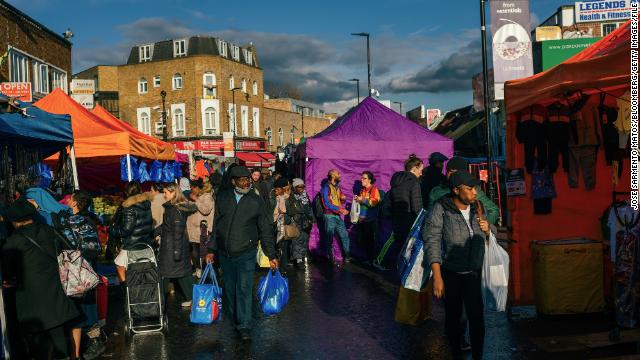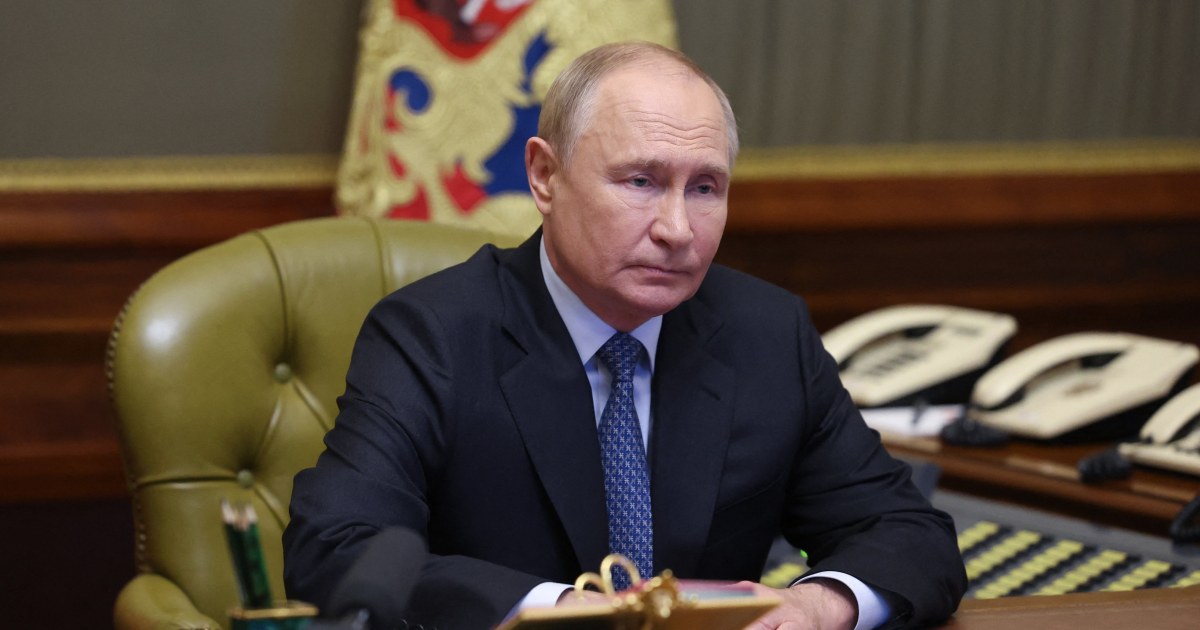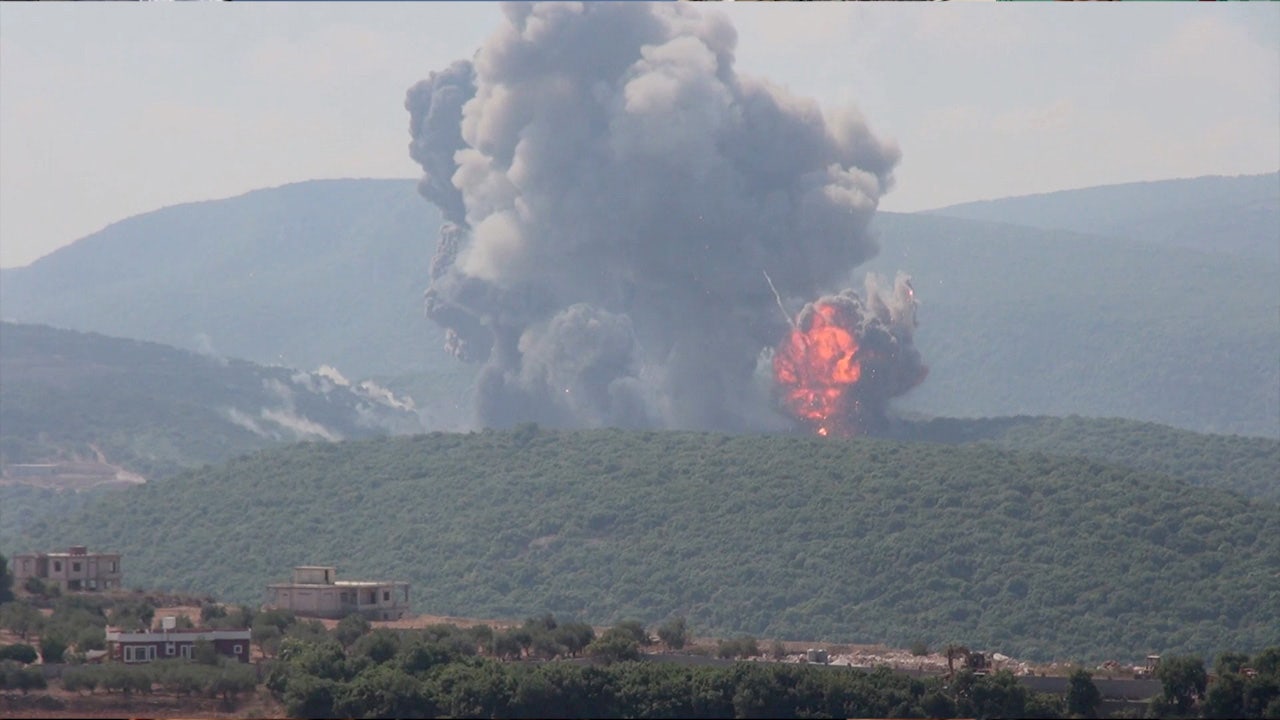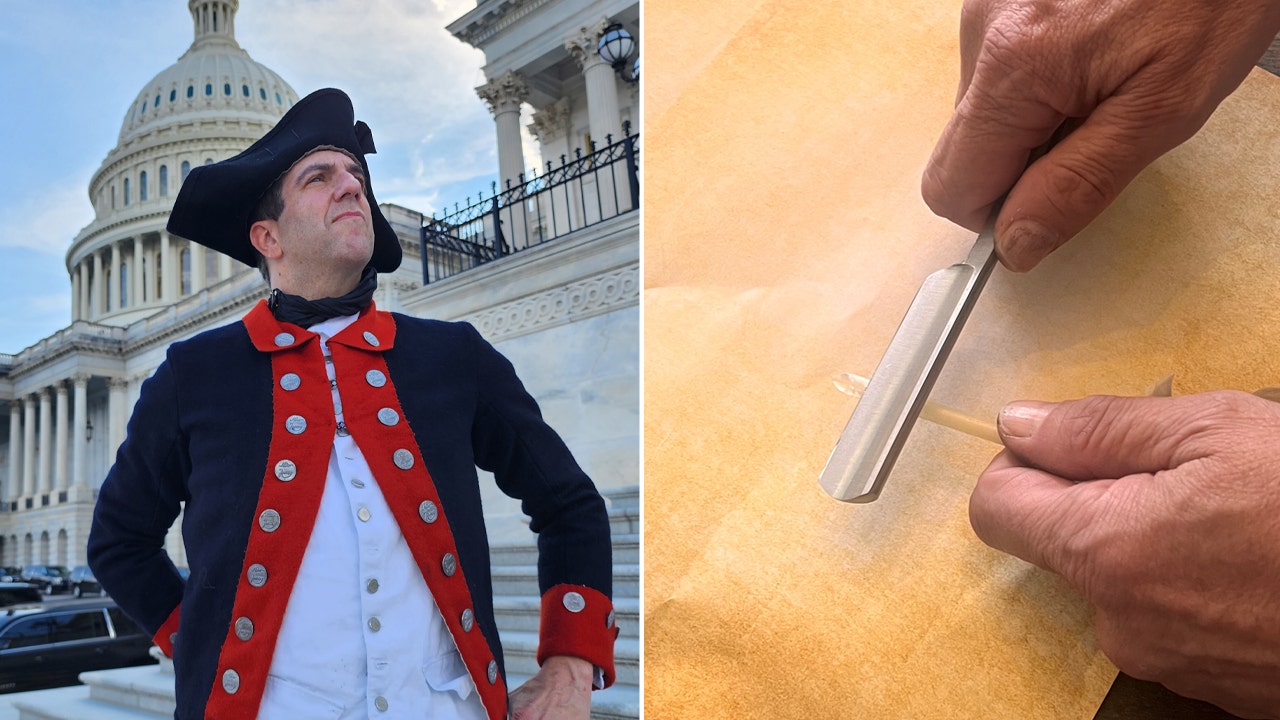Soaring food prices push up UK inflation
From CNN's Olesya Dmitracova and Hanna Ziady

UK consumer prices jumped by 10.4% in February compared with a year ago, as food inflation hit its highest level in more than 45 years, and as the cost of visiting restaurants and hotels increased, official data showed Wednesday.
Food prices soared 18.2% through the year to February, the sharpest rise since the late 1970s. The Office for National Statistics noted particular increases for some salad and vegetable items, partly caused by shortages, which led to rationing by supermarkets.
The surprise uptick in inflation in February follows months of deceleration since the pace of price rises reached a 41-year high of 11.1% in October.
The latest figures could make it more likely that the Bank of England hikes interest rates again when it meets Thursday.
Although recent turmoil in the banking sector is expected to weaken economic activity, as lending criteria are tightened, and so dampen inflation, "the Bank of England may well want to see hard evidence of that before it stops raising interest rates," said Paul Dales, chief UK economist at Capital Economics.
"It's still a very close call, but these figures give us a bit more confidence in our forecast that the Bank will raise interest rates from 4% to 4.25% tomorrow."
But Samuel Tombs, chief UK economist at Pantheon Macroeconomics, said increases in food inflation and catering services inflation accounted for all of the rise in the headline rate and both were linked to the jump in the price of fresh food as a result of bad harvests.
"This boost should unwind over the coming months," he said on Twitter. "It makes little sense to hike rates to counter a weather-related jump in food prices."
Core inflation — which strips out volatile food and energy costs — also rose, coming in at 6.2% in the year to February, up from 5.8% in January.
The data complicates the central bank's decision over whether it should raise rates for the 11th consecutive time Thursday — and makes it harder for the government to deliver on its January pledge to halve inflation this year.
And Britons are still getting poorer. Wages rose 6.5% in January compared with a year prior, far below the inflation rate both that month and in February.
Exclusive: After bank failures, Elizabeth Warren demands Fed crackdown on large regional banks
From CNN's Matt Egan
Senator Elizabeth Warren is cranking up the pressure on the Federal Reserve following the collapse of Silicon Valley Bank.
In a new letter shared exclusively with CNN, Warren, Sen. Bernie Sanders and six other senators are calling for the Fed to crack down on large regional banks with assets between $100 billion and $250 billion.
Both Silicon Valley Bank and Signature Bank fit into that asset threshold when they failed earlier this month. The bipartisan 2018 rollback of Dodd-Frank freed large regional banks in that range of assets from the toughest oversight.
The lawmakers note that the same 2018 rollback of Dodd-Frank gives the Fed latitude in applying tougher regulation on banks in this category -- including stronger capital, liquidity, stress testing and resolution plans.
Notably, the letter was signed by Senator Angus King, the Maine independent who voted in favor of the 2018 rollback. It was also signed by Sanders and Democratic Senators Jack Reed, Tammy Duckworth, Richard Blumenthal, Mazie Hirono and Ed Markey.
The lawmakers argue that the federal intervention in the wake of the SVB and Signature failures underscore the systemic risk posed by troubles in banks of this size.
Expect Powell to get quizzed on bank failures
From CNN's Matt Egan
The collapse of Silicon Valley Bank and Signature Bank occurred during the Federal Reserve’s blackout window, a 10-day period from the second Saturday before a policy meeting to midnight the day after a meeting. During that period, officials are barred from making public comments on monetary policy.
That means Wednesday is the first time that Fed officials will really be able to weigh in.
During his scheduled press conference at 2:30 p.m., Fed Chair Powell will likely face a host of questions on the bank failures. On the regulatory front, how did the Fed miss this coming? Don’t these regional banks deserve tougher scrutiny? And on the economic front, Powell will need to explain how Fed officials see the bank failures tightening financial and lending conditions and thus slowing the economy.
In many ways, the banking crisis is doing the Fed’s job for it – just not in an orderly way.
Stock futures hold steady as investors nervously await the Fed's decision
Stocks: US stock futures were slightly lower Wednesday ahead of a critical Fed decision: Will it raise rates to continue to fight inflation or keep rates steady to ease up on a banking sector in crisis? Dow futures were down 15 points, or 0.1%. S&P 500 futures fell 0.1%. Nasdaq Composite futures were 0.2% lower. European markets were mostly higher, and Asian markets were up sharply.
Fear & Greed Index: 38 = Fear
Oil & gas: US oil prices were down 0.4% to $69 a barrel. Average US gas prices held steady at $3.44 a gallon.
Bitcoin: Bitcoin was unchanged at $28,200.
Fed Chair Powell faces a legacy-defining moment
Analysis from CNN's Christine Romans
The Federal Reserve and its chairman, Jerome Powell, are facing a legacy-defining moment.
The mission? Slay the inflation dragon without singeing the banking system.
Among the choices, the Fed could continue its aggressive rate-hike campaign to cool inflation that is running at triple the central bank's target of 2%. It could take a time-out to assess how that campaign has strained the banking system. Or it could split the difference and raise rates by a quarter point to show its commitment to both the inflation fight and financial system stability. Instead of higher rates for longer, some economists are even penciling in rate cuts late this year if the banking crisis fuels a recession.
For Powell and Co., the stakes are high.
"I don't think he should be chairman of the Federal Reserve," Democratic Senator Elizabeth Warren told NBC's Meet The Press this weekend.
Warren — already a critic of the Fed's inflation fight — said Powell has failed at both monetary policy and bank supervision.
But for any Fed chief, there are more challenges than tools to tackle them. And this Fed chief inherited an unprecedented economy.
"Powell has been stuck between a rock and a hard place from the moment he became Chair," said Ann Berry, founder of Threadneedle Ventures. He was "handed two administrations without fiscal discipline and two black swan events of a global pandemic and a Twitter-driven bank run."
"He has read correctly the labor market's ability to sustain full employment in the face of necessary rate hikes," she said, "but history won't judge kindly the late start to Fed tightening and the failure to catch SVB's obviously flawed risk management."
Jerome Powell made “biggest mistake” in 40 years
From CNN's Mark Thompson
The Federal Reserve is facing “a trilemma,” and Chair Jerome Powell is partly to blame, according to Mohamed El-Erian, chief economic adviser at Allianz.
“They have to lower inflation, they have to avoid more banking stress and they have to avoid the economy going into recession. It’s a very delicate policy balance and it reflects the fact that they started [raising rates] late,” he told the BBC.
“I think history will show that [Powell] has probably made the biggest mistake in the last 40 years, and it’s the mistake of not reacting quickly enough to inflation and as a result ending up destabilizing the banking system,” El-Erian said.
“So, I’m afraid that he’ll go down in history as having under-reacted to inflation and not having supervised the banking system adequately.”
El-Erian said the Fed should ignore those calls.
“The market expects them to raise interest rates by a quarter of a percent. If they do that they will simply validate market expectations, and they will follow the European Central Bank, which last week raised by half a percentage point while saying that we have other tools to deal with financial stability,” he said.
“I worry that they will be tempted to do nothing and that will cause its own instability. “
Europe’s top regulator: US rollback of banking rules was "damaging"
From CNN's Anna Cooban
The European Central Bank’s top banking supervisor said Tuesday that the capital and liquidity positions of European banks was “solid,” while cautioning that signs of credit risk were appearing in parts of their loan books.
“Banks’ capital and liquidity positions remain solid and well above minimum requirements,” the ECB’s Andrea Enria told European Union lawmakers.
But European banks needed to be watching carefully for risks to their funding and liquidity that could arise from “the fast-paced adjustment of interest rates,” he said.
The ECB was also closely monitoring “increasing credit risk in certain sectors,” Enria said. While non-performing loans — loans where the borrower misses repayments — have declined overall, the central bank has seen “some upticks,” particularly in the area of consumer finance, Enria said.
But he emphasised the overall strength of European banks and drew a stark comparison with lenders in the United States. Enria said that the decision of US officials in 2018 to roll back some regulations applied to banks following the 2008 financial crisis had proved “damaging.”
ECB President Christine Lagarde said in a press conference Monday that regulations for smaller-sized banks had not been weakened in Europe.
Basel III, a set of international standards developed in response to the 2008 crisis, applied to 2,200 European banks, compared with just 14 in the United States, Lagarde said.
Swiss government tells Credit Suisse to suspend some bonus payments
From CNN's Olesya Dmitracova
Switzerland’s finance department has ordered Credit Suisse to suspend the payment of certain types of bonuses to the bank’s staff.
“This measure relates to already granted but deferred remuneration for the financial years up to 2022, for example in the form of share awards,” the country’s Federal Council said in a statement released late Tuesday.
Deferred payments that are already in the process of being made are exempt, it added.
The council cited a Swiss law that stipulates the imposition of “remuneration-related measures if a systemically important bank is directly or indirectly granted state aid from federal funds.”
As Credit Suisse teetered on the brink of collapse last week, it drew on a cash lifeline from the Swiss central bank. But that wasn’t enough to repair the lender’s shredded reputation and, over the weekend, the Swiss government brokered a rescue takeover of Credit Suisse by larger rival UBS.
The Federal Council has also instructed the finance department to propose further measures on variable remuneration, or bonuses, for the financial years up to 2022 and onward.
Dow closes up more nearly 300 points as regional banks rebound
From CNN's Nicole Goodkind
US stocks closed higher on Tuesday as shares of regional banks rebounded from record-breaking losses earlier in the month.
Shares of troubled lender First Republic led the way, soaring 30%, making back a large portion of the losses from its 47% plunge in the prior session. The SPDR Regional Banking ETF (KRE), which tracks a number of small and mid-sized bank stocks, gained 5.8% for the day.
The boost came after US Treasury Secretary Janet Yellen said on Tuesday at an event hosted by the American Bankers Association that the federal government was willing to guarantee more deposits should the current banking meltdown continue.
Investors were also buoyed by news that JPMorgan Chase CEO Jamie Dimon was advising the beleaguered First Republic Bank on next steps and strategy.
Wall Street will closely watch the Federal Reserve as the central bank announces its next monetary policy decision on Wednesday afternoon.
Investors are largely pricing in a quarter-point rate hike and will listen closely to see if Fed Chair Jerome Powell is able to justify hiking rates while reassuring panicked markets that the Fed can maintain the safety and security of the banking system.
The Dow closed up 299 points, or 0.9%.
The S&P 500 rose by 1.2%.
The Nasdaq Composite closed 0.9% higher.
As stocks settle after the trading day, levels might still change slightly.
.png)
 1 year ago
5
1 year ago
5









 English (US) ·
English (US) ·